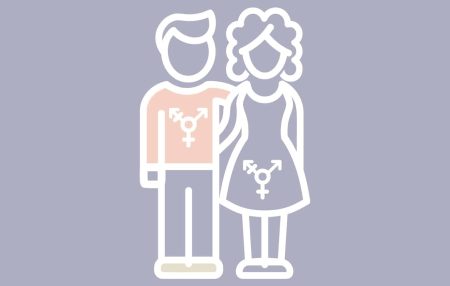29 December 2023
Questions about personal identity, legal and biological parenthood and birth certificates can arise in different ways and create all sorts of complex issues. In some cases, they can come about because of personal searches and histories involving absent parents, adoption and donor conception. For others, unexpected discoveries and issues can arise following a direct-to-consumer DNA test, death of a relative, conversation with a family member, an encounter with a genetic relative or an application for a new birth certificate or passport. This can in turn necessitate a court application for a Declaration of Parentage to resolve legal and biological parenthood and rectify an individual’s birth certificate.
What is a Declaration of Parentage?
A Declaration of Parentage is a legal ruling by the English Family Court that resolves and confirms the legal and/or biological parentage of an individual. It can also result in the re-registration of a British birth certificate to correct, add or remove a parent’s name and correct an individual’s birth record.
A Declaration of Parentage does not confer parentage upon an individual per se, making it different from an application for an adoption order or a parental order following surrogacy. Instead, a Declaration of Parentage recognises and confirms that an individual is a biological parent or is a legal parent by operation of English law.
Why is legal and biological parenthood important?
Legal parenthood is significant because it creates legal relationships between a parent and a child and between family members under English law (e.g. grandparents, siblings, aunts, uncles and cousins). This is important, for example, in safeguarding and determining a child’s upbringing, entitlement to citizenship and a passport and for inheritance purposes.
Clarity about biological parenthood and origins is also important. It helps inform personal identity, traits and characteristics, medical and genetic history and ancestry, relationships with genetic relatives and prevent consanguinity. It also helps address searching questions such as “Who am I?” and “Where do I come from?” where personal histories include childhood adoption, donor conception, fertility treatment or following discovery of family secrets involving love, loss and infidelity.
In what situations might I need a Declaration of Parentage?
A Declaration of Parentage can be helpful in a range of situations, including:
- Resolving an issue/dispute about biological and legal parenthood following an at-home DNA test (e.g. via AncestryDNA, 23andMe, MyHeritage).
- Resolving biological and legal parenthood and rectifying a birth certificate where a parent is deceased.
- Re-registering a birth certificate following adoption to record a birth parent.
- Resolving a dispute about an individual or child’s birth certificate (e.g. whether a birth certificate should be re-registered to add or remove a person’s details).
- Resolving a dispute about a child’s biological or legal father or second legal parent (this can raise complex legal and evidential issues about conception arrangements, personal relationships, fertility treatment, DNA testing law, status and consent in modern family cases).
- Addressing and overcoming problems with completion of patient HFEA consent forms at UK fertility clinics (e.g. missing or errors), calling into question the legal parentage of a non birth parent for their child.
- Resolving a dispute about paternity/legal parentage and financial provision for a child.
How do I obtain a Declaration of Parentage?
An application for a Declaration of Parentage in the English Family Court is made pursuant to section 55A of the Family Law Act 1986. It is started by the completion and submission of a C63 Court Form and payment of the relevant court fee. It is a bespoke application, meaning each case will be determined on its individual merits by the Court. As such, it is important to prepare an application for a Declaration of Parentage thoroughly with supporting evidence, particularly if it involves complex issues or it will be robustly contested by another party.
An application for a Declaration of Parentage is not time limited, meaning it can be granted at any point in life (involving both minor and adult children), provided the application demonstrates sufficient personal interest and connection to England and Wales and an appropriate legal and evidential basis.
Within the course of legal proceedings for a Declaration of Parentage, the English Family Court will scrutinise the application and supporting evidence carefully. It can make a direction for secure chain of custody DNA testing if it is appropriate in the overall circumstances of the case. Whilst the English Family Court cannot compel an individual to undergo a DNA test, it can draw inferences if they refuse to cooperate and comply with a direction for DNA testing in determining the case.
The court process can take 6 –12 months (although actual timescales vary depending upon the complexity of the case and court availability).
Fertility and Family Law
Click here to find out more about our specialist expertise concerning legal parentage and parenthood and applications for a Declaration of Parentage in the English Family Court.
Image: Louisa Ghevaert, CEO & Founder of Louisa Ghevaert Associates







